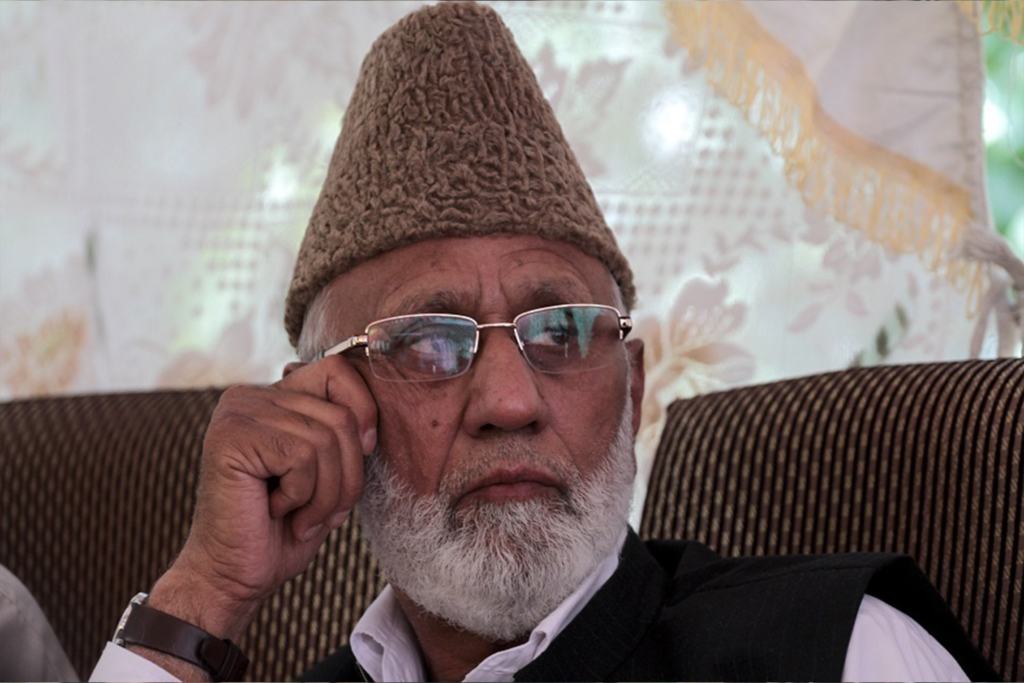
SURVILIENCE IN KASHMIR
Syed Suhaib Abdullah
A wave of dangerous surveillance has gripped Kashmir with people drawing parallels to the stringent monitoring and control mechanisms seen in conflict zones like Gaza, where Israeli forces exert extensive oversight over Palestinian lives. The Indian military’s demands for personal data from residents have raised significant concerns about privacy, autonomy, and the sanctity of private spaces.
Residents in Kashmir have reported that the Indian army is demanding extensive personal information, including phone numbers, email addresses, and life-size photographs of all family members, with a particular emphasis on females. The occupying military seeks details about relatives and friends, the number of rooms in households, information about any additional properties, and specifics about land ownership and household income. This exhaustive data collection exercise is far-reaching, extending beyond immediate family to include distant relatives and acquaintances.
Family members, particularly females, are being forced to maintain communication with military officers via WhatsApp. The intrusive nature of these demands has sparked widespread anxiety among the local populace.
The parallels with Israeli surveillance of Palestinians in Gaza are striking. In Gaza, Israeli forces employ a range of surveillance technologies and methods to monitor Palestinian activities, gather intelligence, and maintain control over the population. This includes extensive use of drones, CCTV cameras, and digital monitoring tools to track movements, communications, and online activities. Palestinians in Gaza often live under constant surveillance, with their privacy invaded and their every move monitored by Israeli forces. Similarly, in Kashmir, the Indian military’s data collection efforts represent a significant invasion of privacy and an intrusion into the private lives of residents. The demand for personal data, including sensitive information like email accounts, bank details, and personal records, raises serious questions about the extent of surveillance and the protection of individual privacy rights.
This pervasive surveillance culture extends beyond individual households to encompass broader aspects of daily life in Kashmir. Public spaces, workplaces, educational institutions, and even online platforms are subjected to varying degrees of surveillance. The omnipresence of military personnel and the deployment of surveillance technologies contribute to a climate of constant monitoring and oversight.
The population’s fears about privacy and the security of their personal information are not unfounded. With the growing reliance on digital platforms for communication, banking, and daily transactions, the potential for misuse of personal data is a genuine concern. The collection and storage of such vast amounts of personal information by the military raises questions about data security, confidentiality, and the potential for misuse or unauthorized access.
The normalization of surveillance in Kashmir has broader implications for freedom of expression, association, and assembly. The fear of being monitored, tracked, or targeted for expressing dissenting views or participating in peaceful protests stifles public discourse and creates a climate of fear where everyone has an impression that the Bg Brother is watching them. The chilling effect of surveillance on freedom of speech and association cannot be overstated, as individuals have self-censored or refrained from engaging in activities deemed sensitive or controversial by the Indian state.
The most concerning aspect of this dangerous surveilience is demanding the life size photographs of the female members. For Kashmiris, or for that matter for every individual across the globe, the honor and sanctity of female members is above all things and nobody would like to share personal and sensitive details about them, let alone share life size photographs with a military that has been murdering them since decades. The use of rape as a weapon of war by Indian military is well documented and now the same military forcing Kashmiris for such details about their females is utterly fearsome. Last year, Indian authorities in the region installed GPS annklets on Kashmiri prisoners who were released on bail to track their activities.




